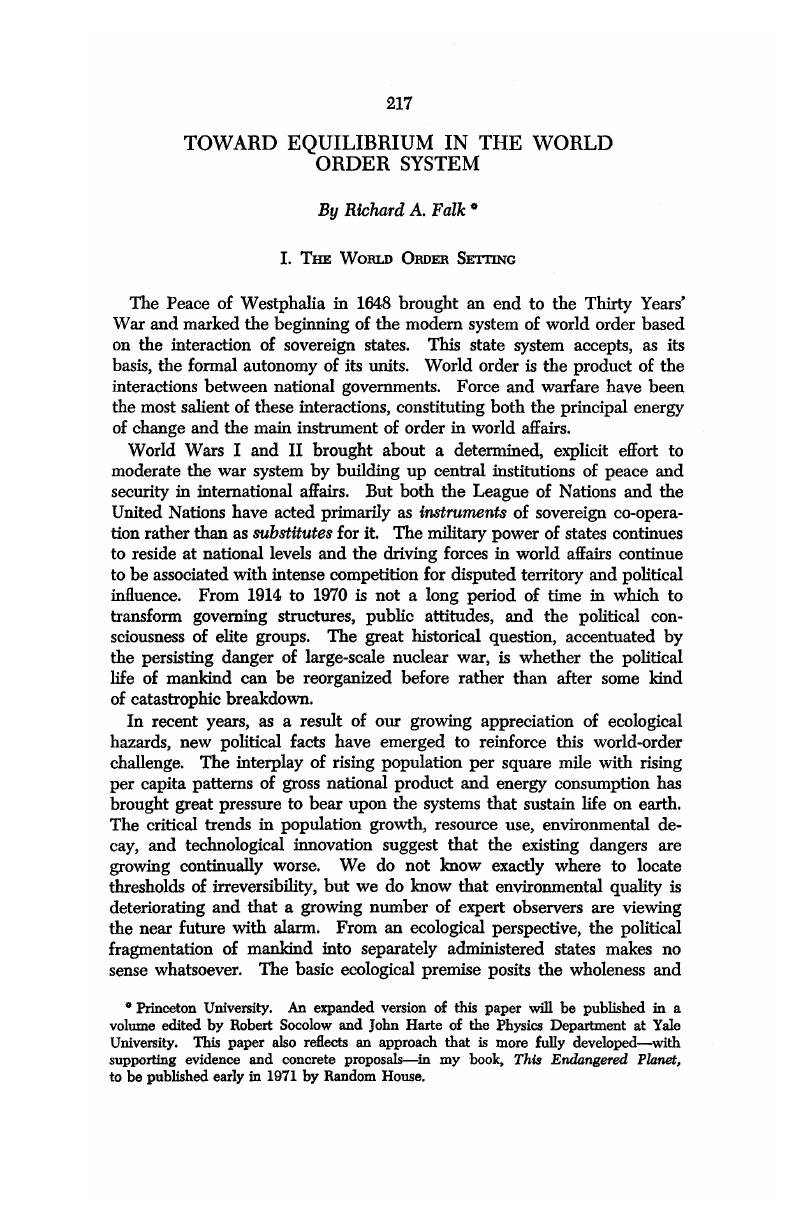Article contents
Toward Equilibrium in the World Order System
Published online by Cambridge University Press: 28 March 2017
Abstract

- Type
- Panel: The United Nations and the Environment
- Information
- Copyright
- Copyright © American Society of International Law 1970
Footnotes
An expanded version of this paper will be published in a volume edited by Robert Socolow and John Harte of the Physics Department at Yale University. This paper also reflects an approach that is more fully developed—with supporting evidence and concrete proposals—in my book, This Endangered Planet, to be published early in 1971 by Random House.
References
1 On ecological perspectives, see Ehrenfeld, David W., Biological Conservation (New York, Holt, Rinehart, 1970)Google Scholar; Odum, Eugene, Ecology (New York: Holt, Rinehart, 1969)Google Scholar; Shepard, Paul and McKinley, David (eds.), The Subversive Science; Essays Toward an Ecology of Man (Boston: Houghton, Mifflin, 1969)Google Scholar.
2 For seminal analysis of this issue, see Hardin, Garrett, “The Tragedy of the Commons,” 162 Science 1243-1248 (Dec. 13, 1968)10.1126/science.162.3859.1243Google Scholar; cf. also Beryl Crowe, “The Tragedy of the Commons Revisited,” 166 ibid. 1103-1107 (Nov. 29, 1969).
3 Such central control does not necessarily entail coercive or bureaucratic structures; indeed functional modes of control may involve a lessening of governmental presence while providing over-all guidance.
- 3
- Cited by


